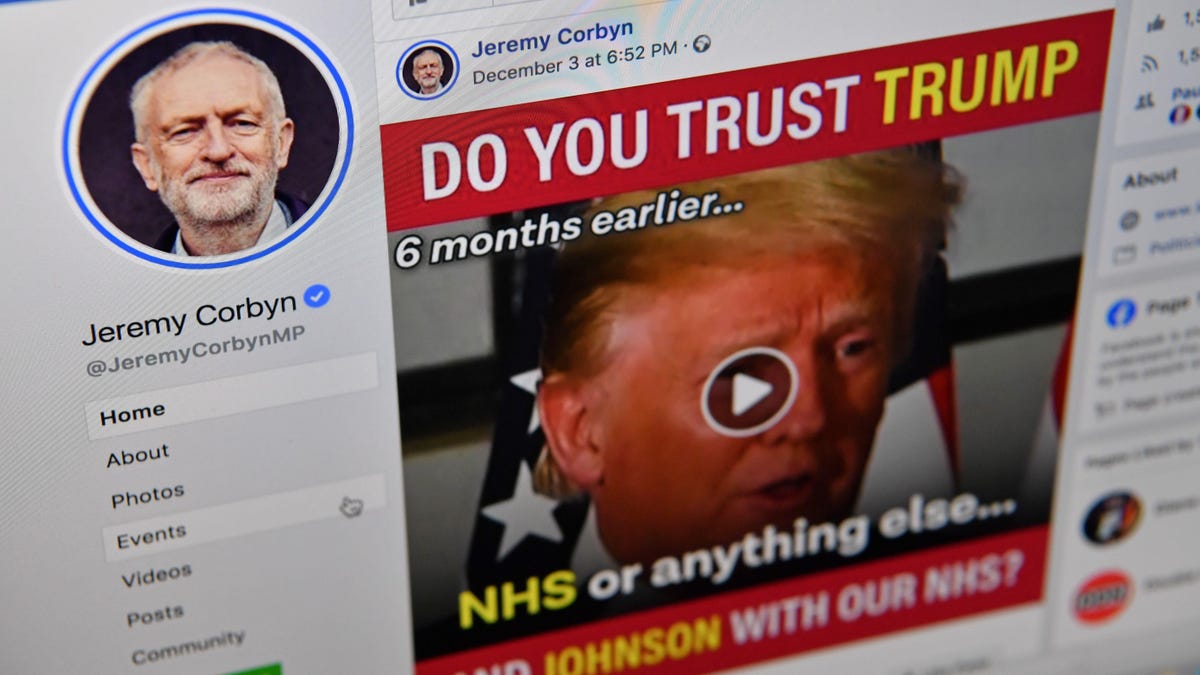
Advertisement
YouTube, by contrast, with its estimated 214 million U.S. users in 2020 does allow political advertising but has put in place stricter limits on how advertisers can target those ads than Facebook, according to the Bloomberg report. Specifically, back in 2019 YouTube parent Alphabet announced it would no longer let political campaigns micro-target individuals with ads based on their personal attributes YouTube’s older brothers over Google have also shown a willingness to abruptly turn off political ads in politically uncertain moments, as they did in the weeks following the January 6 Capitol Hill attacks. Amazon-owned streaming platform Twitch, meanwhile, says it prohibits the promotion of political candidates or political parties full stop.
Facebook political advertising also looks different than it did in the wild west years leading up to Donald Trump’s election and the devastating Cambridge Analytica scandal. During the 2020 presidential election, Facebook experimented with limiting political advertising in the final days before the election in an effort to avoid contributing to potentially election-swaying misinformation. Though not everyone agreed with that decision, Facebook viewed it as a success, so much so that it plans to put in place similar restrictions in the week prior to the 2022 midterms.
Advertisement
Possibly more important than those short-term bans though were policy changes introduced last year that would ban advertisers from targeting users with political ads based on the political, religious, or health-related content they viewed on Facebook. Those changes bring Facebook closer in line with Google, though as The Washington Post notes, the platform still lets advisers engage in many strategies some would reasonably call “microtargeting.” The strategists speaking with Bloomberg said even these incremental steps from Facebook, ostensibly aimed at earnestly trying to prevent Facebook from eating an election manipulation shit sandwich, are simultaneously making their political ads less effective.
“They definitely over the years have taken away our ability to target political ads,” GMMB Senior Vice President Erica Monteith told Bloomberg.
Advertisement
Some political advertisers are reportedly turning to less predictable delivery routes in light of Facebook’s apparent sinking ship. Jon Adams, the founder and CEO of GOP-aligned TAG Strategies, told Bloomberg that advancements in SMS tech have made it possible, and more appealing to send lengthy campaign videos via text. The Federal Trade Commission also recently voted to approve a new pilot program from Google that would essentially exempt political campaign ads from being flagged by spam filters. That program is expected to result in an increase in noxious spam campaign emails, particularly those of the ALL CAPS and Republican variety. Presumably, that change could net a few more campaign contributions here and there. That’s all fine but, at least for now, those efforts still represent peanuts compared to what Facebook can currently.
It’s easy to overstate the impact Facebook, or any social media company actually has on elections. This year, according to AdImpact data, political campaigns are expected to drop a record $9.7 billion on election advertising. Only 15 percent (or $1.44 billion) of that number is expected to come from digital advertising. Campaigns are expected to spread nearly three times as much on old-school broadcasts. There’s also a growing body of research challenging prior assumptions and calling into question the overall efficacy of digital ads.